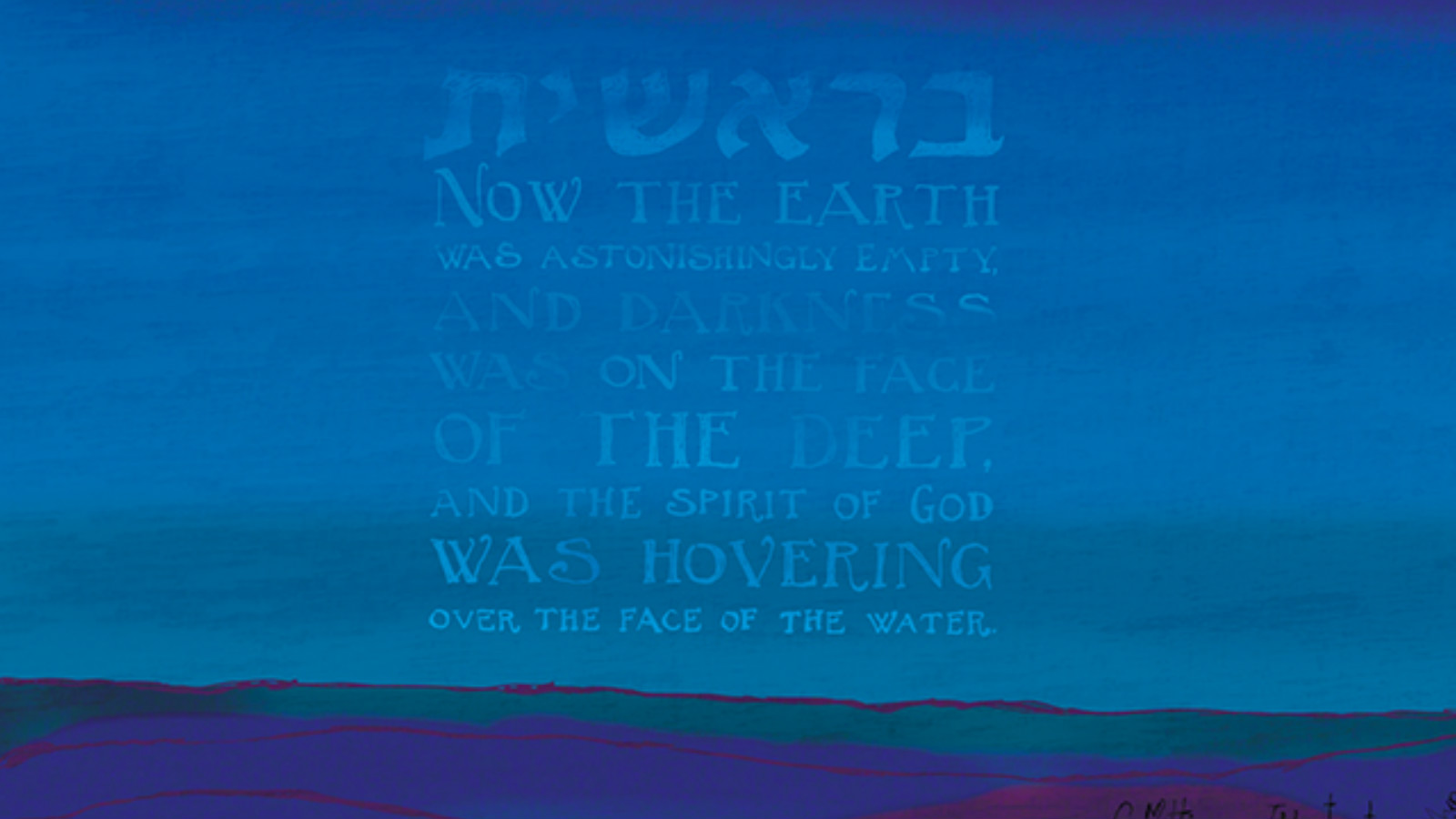Commentary on Parashat Bereshit, Genesis 1:1-6:8
The algorithms that social media companies use help us find out what’s going on in our world, with friends, and with family. How considerate of them. But as many have pointed out, these algorithms also create a bubble where we only hear ideas and opinions from people that are in some ways very much like us.
Parashat Bereshit cannot tell us which algorithms are the most useful, but the first portion of the Torah does struggle with the challenge of maintaining healthy boundaries while bringing opposites together.
Right from the start, distinctions are made. From the very first verse, the Torah tells us: “In the beginning, God created the heavens and earth.” Later, even more distinctions between different parts of the “heaven” (upper and lower waters) and different parts of earth (land and water). More and more distinctions and differentiations — frequently binary: light and darkness; day and night; male and female; two distinct human beings; forbidden fruit and permissible food; human beings vs. the rest of nature over which humans rule and are expected to preserve.
The beginning of the Torah wants to lay down the foundations for the world and for the Jewish people, emphasizing boundaries and distinctions. The rest of the Torah and the whole Bible will try to demonstrate good behavior vs. sinful behavior, things that bring life (kindness, love of God) and things that bring about death (unethical behavior, idolatry). Yet, there is an immediate contradiction: All these distinctions and differentiations and boundaries are created by the one God! God makes the heavens and the earth; God makes the animals and plants, along with their master, human beings.
With your help, My Jewish Learning can provide endless opportunities for learning, connection and discovery.
When the lights go out on the first Friday night for Adam and Eve, as they have been thrown out of the illuminated Garden of Eden right before Shabbat, they are in the “darkness” that God created. Yet, God does not want them to live without light — even at night, when the darkness reigns. So in the Jewish tradition, fire is not stolen from the gods, as in Greek mythology, but rather, God helped human beings create fire in order to pierce through the boundaries of darkness to have light. Every time we say during Havdalah that God makes the distinction between light and dark — and the Jewish people and the rest of the world — we hold up a candle to declare that even within these distinctions, we are never oblivious to the “other.” We need to have light in our darkness, and that light comes from the “other”.
Rabbi Aaron Soloveichik explained that while Eve was created by using some of Adam’s rib, the Torah says also that “God covered up [Adam’s missing rib] with flesh”: meaning, that while there is some of Adam’s bone in every Eve, there was some of Eve’s soft flesh in every Adam. Every human has elements of Adam (tough ribs) and elements of Eve (soft flesh). Things are not always as binary as they seem! In the Midrash, God pulls Adam and Eve apart: God wants them to be distinct human beings. Yet in our portion also, the Torah says, “It is not good for a human to be alone.” Marriage is born in the same portion where the uniqueness of every human being is celebrated. Separate, yet finding a way to come together.
We do not always know how to carefully pierce the walls of distinction, but our tradition reminds us that this piercing is critical. We hold up a candle at Havdalah, and we celebrate marriage. We have differences and personal space that must be respected, but we also need to figure out how to welcome “the other” in a way that does not negate our distinct identity.
So if we live in the suburbs, let’s not forget about life in the city, and in the less fancy parts of the city. If our children go to Jewish day school, as my children do, let’s make sure they connect with non-Jews and with children of a different economic and ethnic strata than our own. I hope we care about Israel and the Jewish community, passionately, and we also have to let in a passionate concern for all those who need our help, from Myanmar to Sudan. Let us create our distinct, Jewish and human identities, and at the very same time as we say “Havdalah” — distinctiveness —let’s hold up the candle to remind us to bring in people, ideas and truths from outside our orbit into our world.
Havdalah
Pronounced: hahv-DAHL-uh, Origin: Hebrew, From the root for "to separate," the ceremony marking the end of Shabbat and the beginning of the week.
Midrash
Pronounced: MIDD-rash, Origin: Hebrew, the process of interpretation by which the rabbis filled in “gaps” found in the Torah.



